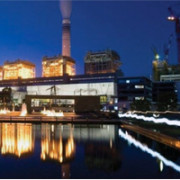Tag Archives | energy security
Energy, Regional cooperation and integration
 Economics, Energy
Economics, Energy
 Economics, Energy
Economics, Energy
 Energy
Energy

Diversification of solar PV suppliers for sustainable energy during the COVID-19 crisis

Experts are increasingly acknowledging the vulnerability of the global solar photovoltaic (PV) value chain due to the concentration of manufacturing capacity in only a few countries, such as the People’s Republic of China (PRC) (Zhai 2020). In Japan, although solar power comprised only 7% of the country’s total power generation in 2018, it contributed to one-third of power from renewable sources. Given this high share of solar power in renewable energy sources, disruption in the availability of solar PV may have adverse consequences on the sustainability of renewable energy power generation.
Economic integration and energy efficiency for energy security in ASEAN

The security of energy supply is crucial for rapid growth in Southeast Asia, but it is being increasingly challenged by the region’s fast-growing energy demand. This high demand can be explained by improvements in energy access as well as population and economic growth.
Political risks in energy-transporting countries and energy security in the Caspian Basin

Energy security is a crucial issue in contemporary international relations but not a new one. It is usually defined as the reliable and sufficient supply or demand of energy at acceptable prices and is at the top of the agenda for both energy-importing and energy-exporting countries.
Securing energy for low-carbon Asia: What needs fixing?

The pattern of energy supply and demand that has prevailed over the last 3 decades is undergoing transformation, with great consequences for Asia’s energy security and regional cooperation. The two factors driving this transformation are the rise of the Association of Southeast Asian Nations (ASEAN), the People’s Republic of China (PRC), and India as major energy consumers, and the impressive additions to oil, gas, and coal output. The first is driven by growing populations, industrial growth, and economic ascendance of emerging economies. The second stems from the opening up of new geological formations for the production of conventional fuels at reasonable costs.


Search
Subscribe / Connect to Asia Pathways
Subjects
- Agriculture and natural resources
- Blog
- Capacity development
- Climate change
- Economics
- Education
- Energy
- Environment
- Finance sector development
- Gender
- Governance and public sector management
- Health
- Industry and trade
- Information and Communications Technology
- Infrastructure
- Miscellaneous
- Population
- Poverty
- Private sector development
- Regional cooperation and integration
- Sanitation
- Social development and protection
- Transport
- Uncategorized
- Urban development
- Video Blog
- Water
Recent Posts
- Unraveling the Health Risks of Climate Change
- Linking Farmers to Markets Through Agricultural Cooperatives and E-Commerce in Asia
- How Can Governments Support Electricity Distribution to Achieve Net Zero in Asia?
- Promoting Corporate Climate Action Through Greenhouse Gas Accounting
- Evaluating G7 Commitments on Climate Change, Health, Well-Being, and Agriculture




Recent Comments